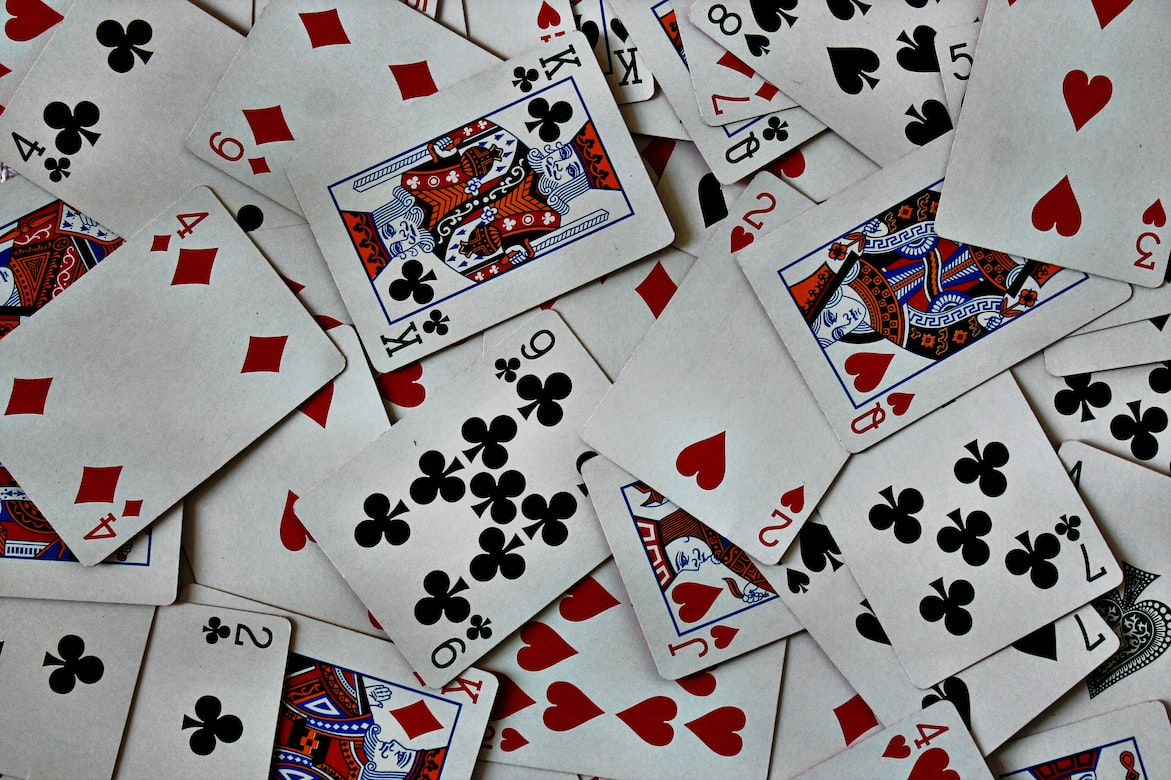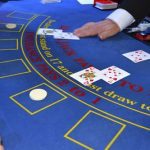
Introduction:
Poker’s Greatest Legends: Profiles of Timeless Players delves into the lives and achievements of some of the most influential figures in the world of poker. From the early days of the game to the modern era, these players have left an indelible mark on the poker landscape, shaping the strategies, techniques, and overall culture surrounding the game. Through their exceptional skills, remarkable accomplishments, and captivating stories, these legends have become icons in the realm of poker, inspiring both aspiring players and enthusiasts alike. Join us as we explore the lives and legacies of these timeless players who have cemented their place in poker history.
The Rise of Poker Legends: A Look at the Game’s Most Iconic Players
Poker is a game that has captivated players and spectators for generations. Throughout its history, there have been several iconic players who have left an indelible mark on the game. These legends have not only achieved remarkable success but have also shaped the way poker is played today. In this article, we will delve into the rise of poker legends and explore the profiles of some of the game’s most timeless players.
One such legendary player is Doyle Brunson, often referred to as the “Godfather of Poker.” With his cowboy hat and charismatic personality, Brunson became synonymous with the game during the 1970s and 1980s. He won the World Series of Poker Main Event back-to-back in 1976 and 1977, cementing his status as one of the greatest players of all time. Known for his aggressive playing style and ability to read opponents, Brunson’s influence can still be felt in the poker world today.
Another poker legend whose impact cannot be overstated is Phil Ivey. Widely regarded as one of the best all-around players in the game, Ivey has amassed an impressive list of accomplishments throughout his career. His ability to make precise reads and execute flawless bluffs has earned him numerous World Series of Poker bracelets and millions of dollars in winnings. Despite his success, Ivey remains humble and continues to inspire aspiring players around the globe.
No discussion of poker legends would be complete without mentioning Stu Ungar. Often hailed as one of the greatest natural talents to ever play the game, Ungar’s genius was evident from an early age. He won the World Series of Poker Main Event three times, a feat that has yet to be matched. However, Ungar’s personal struggles with addiction ultimately led to his untimely demise. Despite his tragic end, Ungar’s legacy lives on, serving as a cautionary tale about the perils of unchecked talent.
Moving on, we come to Johnny Chan, a player who dominated the poker scene in the 1980s and early 1990s. Chan’s back-to-back victories in the World Series of Poker Main Event in 1987 and 1988 solidified his reputation as one of the game’s greats. Known for his calm demeanor and ability to outwit opponents, Chan’s influence can still be felt today. Many players credit him with popularizing aggressive playing styles and revolutionizing the game.
Lastly, we have Phil Hellmuth, a polarizing figure in the world of poker. Love him or hate him, there is no denying Hellmuth’s talent and success. With a record-breaking 15 World Series of Poker bracelets to his name, he holds the record for the most bracelets won by any individual. Hellmuth’s fiery personality and propensity for making dramatic entrances have made him a household name in the poker community. While some may find his antics off-putting, there is no denying that Hellmuth’s skill at the table is unparalleled.
In conclusion, the rise of poker legends has shaped the game into what it is today. Players like Doyle Brunson, Phil Ivey, Stu Ungar, Johnny Chan, and Phil Hellmuth have not only achieved incredible success but have also left an enduring impact on the world of poker. Their skills, personalities, and contributions continue to inspire new generations of players. As we look to the future of the game, it is important to remember and honor these timeless players who have paved the way for poker’s continued growth and evolution.
From Rags to Riches: Inspiring Stories of Poker Legends’ Journey to Success
Poker has long been a game of skill, strategy, and a touch of luck. Over the years, there have been countless players who have risen from humble beginnings to become legends in the poker world. These individuals have not only mastered the game but also overcome incredible odds to achieve success. In this section, we will delve into the inspiring stories of some of poker’s greatest legends, exploring their journeys from rags to riches.
One such legend is Chris Moneymaker, whose story reads like a fairytale. Hailing from a small town in Tennessee, Moneymaker was an ordinary accountant with a passion for poker. He entered a satellite tournament online with just a $40 entry fee and managed to win a seat at the World Series of Poker (WSOP) Main Event. Against all expectations, he went on to win the tournament, taking home a staggering $2.5 million prize. This victory not only changed Moneymaker’s life but also revolutionized the poker industry, as it sparked a surge of interest in the game and online poker platforms.
Another remarkable tale is that of Stu Ungar, widely regarded as one of the greatest poker players of all time. Ungar’s journey was marked by both triumph and tragedy. Born into a family struggling with poverty, he found solace in playing cards from a young age. His natural talent for the game quickly became evident, and he began making a name for himself in underground poker circles. However, his excessive gambling habits led to significant financial losses and personal struggles. Despite these setbacks, Ungar had an uncanny ability to bounce back. He won the WSOP Main Event three times, becoming the only player to achieve this feat. Unfortunately, his life was cut short due to his addiction issues, leaving behind a legacy of brilliance and untapped potential.
Moving across the pond, we encounter Victoria Coren Mitchell, a British journalist and television presenter who also happens to be a formidable poker player. Coren Mitchell’s journey to success was a testament to her determination and perseverance. As a young woman, she faced numerous challenges in a male-dominated industry. Undeterred, she honed her skills at the poker table and gradually began making a name for herself. In 2006, she became the first woman to win an event on the European Poker Tour, solidifying her status as a force to be reckoned with. Coren Mitchell’s story serves as an inspiration to aspiring players, proving that gender should never be a barrier to achieving greatness.
Lastly, we cannot discuss poker legends without mentioning Doyle Brunson, often referred to as the “Godfather of Poker.” Brunson’s rise to prominence is a testament to his unwavering dedication and adaptability. Born during the Great Depression, he grew up in poverty-stricken Texas. With limited opportunities available, Brunson turned to poker as a means of survival. His career spanned several decades, during which he witnessed significant changes in the game. Despite these shifts, Brunson consistently remained at the top of his game, winning ten WSOP bracelets and authoring influential books on poker strategy. His enduring legacy continues to inspire generations of players worldwide.
In conclusion, the journeys of these poker legends from rags to riches are nothing short of remarkable. Their stories remind us that success can come from unexpected places and that with passion, perseverance, and a little bit of luck, anyone can achieve greatness. Whether it’s Moneymaker’s fairytale victory, Ungar’s tragic brilliance, Coren Mitchell’s breakthrough triumphs, or Brunson’s enduring influence, these legends have left an indelible mark on the world of poker and continue to inspire players around the globe.
Unforgettable Moments: Legendary Plays by Poker Icons That Shaped the Game

Poker, a game of strategy and skill, has produced some of the greatest legends in the world of gambling. These players have left an indelible mark on the game, not only through their incredible talent but also with unforgettable moments that have shaped the very fabric of poker.
One such legendary play comes from none other than Doyle Brunson, often referred to as the “Godfather of Poker.” In the 1976 World Series of Poker Main Event, Brunson found himself facing Jesse Alto in a high-stakes showdown. With just two cards in his hand, Brunson had a 10-2 offsuit, one of the weakest starting hands in poker. However, against all odds, he managed to bluff his way to victory, showcasing his masterful skills and earning the respect of his peers. This audacious move forever changed the perception of what was possible at the poker table.
Another iconic moment in poker history belongs to Stu Ungar, a prodigious player known for his unparalleled talent and troubled life. In the 1980 World Series of Poker Main Event, Ungar faced off against Doyle Brunson once again. With just one card remaining in the deck, Ungar held a seemingly unbeatable hand – a pair of aces. However, Brunson had an open-ended straight flush draw, giving him a slim chance of winning. Miraculously, the final card turned out to be exactly what Brunson needed, completing his straight flush and handing him the victory. This dramatic turn of events showcased the unpredictable nature of poker and solidified both players’ places in poker folklore.
No discussion of legendary poker plays would be complete without mentioning Phil Ivey, widely regarded as one of the greatest players of all time. Known for his impeccable decision-making and ability to read opponents, Ivey’s most memorable moment came in the 2005 Monte Carlo Millions tournament. Facing off against Andy Beal, a billionaire businessman, Ivey made a daring move by bluffing with a 5-high hand. Against all logic, Beal decided to call, only to be shocked when Ivey revealed his bluff. This audacious play demonstrated Ivey’s unparalleled skill and cemented his status as a true poker legend.
Moving on from individual plays, let us not forget the unforgettable moments that have unfolded in poker tournaments over the years. The “Moneymaker Effect” is one such moment that had a profound impact on the game. In 2003, an unknown amateur player named Chris Moneymaker won the World Series of Poker Main Event, earning $2.5 million. His victory, achieved through an online satellite tournament, brought poker into the mainstream consciousness and sparked a global surge in popularity. Moneymaker’s remarkable story showcased that anyone, regardless of their background, could become a poker champion, forever changing the landscape of the game.
In conclusion, the world of poker has been shaped by countless legendary players and their unforgettable moments. From Doyle Brunson’s audacious bluff to Stu Ungar’s heartbreaking defeat, these iconic plays have left an indelible mark on the game. Phil Ivey’s masterful decision-making and Chris Moneymaker’s underdog triumph further solidify the legacy of these poker icons. As we continue to witness new legends emerge, it is important to remember and celebrate the timeless players who have paved the way for the future of poker.
Inside the Mind of a Poker Legend: Strategies and Techniques Used by the Greats
Poker, a game of skill and strategy, has produced some truly legendary players over the years. These individuals have mastered the art of reading their opponents, making calculated bets, and ultimately coming out on top. In this section, we delve into the minds of these poker legends to uncover the strategies and techniques they used to achieve greatness.
One key aspect that sets apart these players from the rest is their ability to remain calm and composed under pressure. They understand that emotions can cloud judgment and lead to poor decision-making. Instead, they approach each hand with a clear mind, carefully analyzing the situation and considering all possible outcomes.
Another crucial element in the arsenal of a poker legend is their mastery of reading opponents. These players possess an uncanny ability to pick up on subtle cues and gestures that reveal their opponent’s hand strength or intentions. Whether it’s a slight twitch, a change in breathing pattern, or a nervous glance, these legends are quick to spot any signs of weakness or deception.
To further enhance their chances of success, poker legends employ various betting strategies. One such technique is known as “bluffing.” Bluffing involves making aggressive bets or raises with a weak hand in order to deceive opponents into folding stronger hands. This tactic requires impeccable timing and a deep understanding of human psychology.
However, bluffing alone is not enough to guarantee victory. Legends also know when to fold their own weak hands. They understand that holding onto a losing hand will only lead to greater losses in the long run. By recognizing when to cut their losses, these players minimize their risks and maximize their profits.
In addition to their psychological prowess, poker legends also rely on mathematical calculations to make informed decisions. They understand the importance of pot odds – the ratio of the current bet to the potential payout – and use this information to determine whether a particular bet is worth making. By weighing the potential rewards against the risks, these players can make calculated bets that give them an edge over their opponents.
Furthermore, these legends are masters of position play. They know that the order in which players act can significantly impact the outcome of a hand. By strategically choosing when to bet, call, or fold based on their position at the table, they can manipulate the actions of their opponents and gain a competitive advantage.
Lastly, poker legends possess an insatiable thirst for knowledge. They constantly study the game, analyzing past hands and learning from their mistakes. They keep up with the latest strategies and trends, always looking for ways to improve their skills. This dedication to continuous learning sets them apart from casual players and allows them to stay ahead of the competition.
In conclusion, poker legends have honed their craft through years of experience and a deep understanding of the game. Their ability to remain calm under pressure, read opponents, employ effective betting strategies, utilize mathematical calculations, leverage position play, and pursue constant self-improvement all contribute to their success. By adopting some of these techniques, aspiring players can hope to emulate the greatness of these timeless poker legends.
Legacy of Poker Legends: How Their Influence Continues to Impact the Poker World
Poker has always been a game of legends, with larger-than-life characters who have left an indelible mark on the poker world. These players not only mastered the game but also influenced it in ways that continue to shape the poker landscape today. In this article, we will delve into the legacy of some of poker’s greatest legends and explore how their influence continues to impact the poker world.
One of the most legendary figures in poker history is Doyle Brunson. Known as “Texas Dolly,” Brunson’s impact on the game cannot be overstated. His book, “Super/System: A Course in Power Poker,” revolutionized the way poker was played. It introduced new strategies and concepts that had never been explored before. Even today, many professional players credit Brunson’s book as their poker bible. Brunson’s fearless style of play and his ability to read opponents made him one of the greatest poker players of all time.
Another iconic figure in the poker world is Phil Ivey. With his calm demeanor and exceptional skills, Ivey became known as the “Tiger Woods of Poker.” He dominated the high-stakes cash games and tournaments for over a decade. Ivey’s influence can be seen in the way modern players approach the game. His aggressive playing style and ability to make big bluffs have become staples in the arsenal of many aspiring professionals.
Moving on, we come to Stu Ungar, a true prodigy of the game. Ungar won the World Series of Poker Main Event three times, a feat that no other player has achieved. His natural talent and genius-level intellect were unmatched. Ungar’s success inspired a whole generation of young players to pursue careers in poker. Today, his name is synonymous with excellence and serves as a reminder of what can be achieved through dedication and skill.
No discussion of poker legends would be complete without mentioning Johnny Chan. Chan’s back-to-back victories at the World Series of Poker Main Event in 1987 and 1988 cemented his status as one of the all-time greats. His ability to read opponents and make precise decisions at critical moments set him apart from his peers. Chan’s influence can be seen in the way modern players approach the game, emphasizing the importance of psychological warfare and exploiting opponents’ weaknesses.
Lastly, we have Phil Hellmuth, known for his larger-than-life personality and record-breaking number of World Series of Poker bracelets. Hellmuth’s impact on the game goes beyond his impressive tournament results. He popularized the concept of “table talk,” using verbal jabs and mind games to gain an edge over opponents. Today, many players incorporate this strategy into their game, recognizing the psychological aspect of poker as a crucial element for success.
In conclusion, the legacy of poker legends continues to shape the poker world today. Doyle Brunson, Phil Ivey, Stu Ungar, Johnny Chan, and Phil Hellmuth are just a few examples of the timeless players who have left an indelible mark on the game. Their books, playing styles, and achievements continue to inspire new generations of players. As the poker landscape evolves, it is essential to recognize and appreciate the contributions of these legendary figures who have paved the way for the growth and popularity of the game we love.In conclusion, Poker’s Greatest Legends: Profiles of Timeless Players provides an in-depth look at some of the most iconic and influential figures in the world of poker. Through detailed profiles, readers gain insights into the strategies, skills, and accomplishments that have made these players legendary. Whether it is Doyle Brunson’s longevity and mastery of the game or Stu Ungar’s natural talent and tragic downfall, this book showcases the stories and legacies of poker’s greatest players. A must-read for any poker enthusiast, it offers a fascinating exploration of the individuals who have shaped the game and left a lasting impact on its history.
 Skip to content
Skip to content





